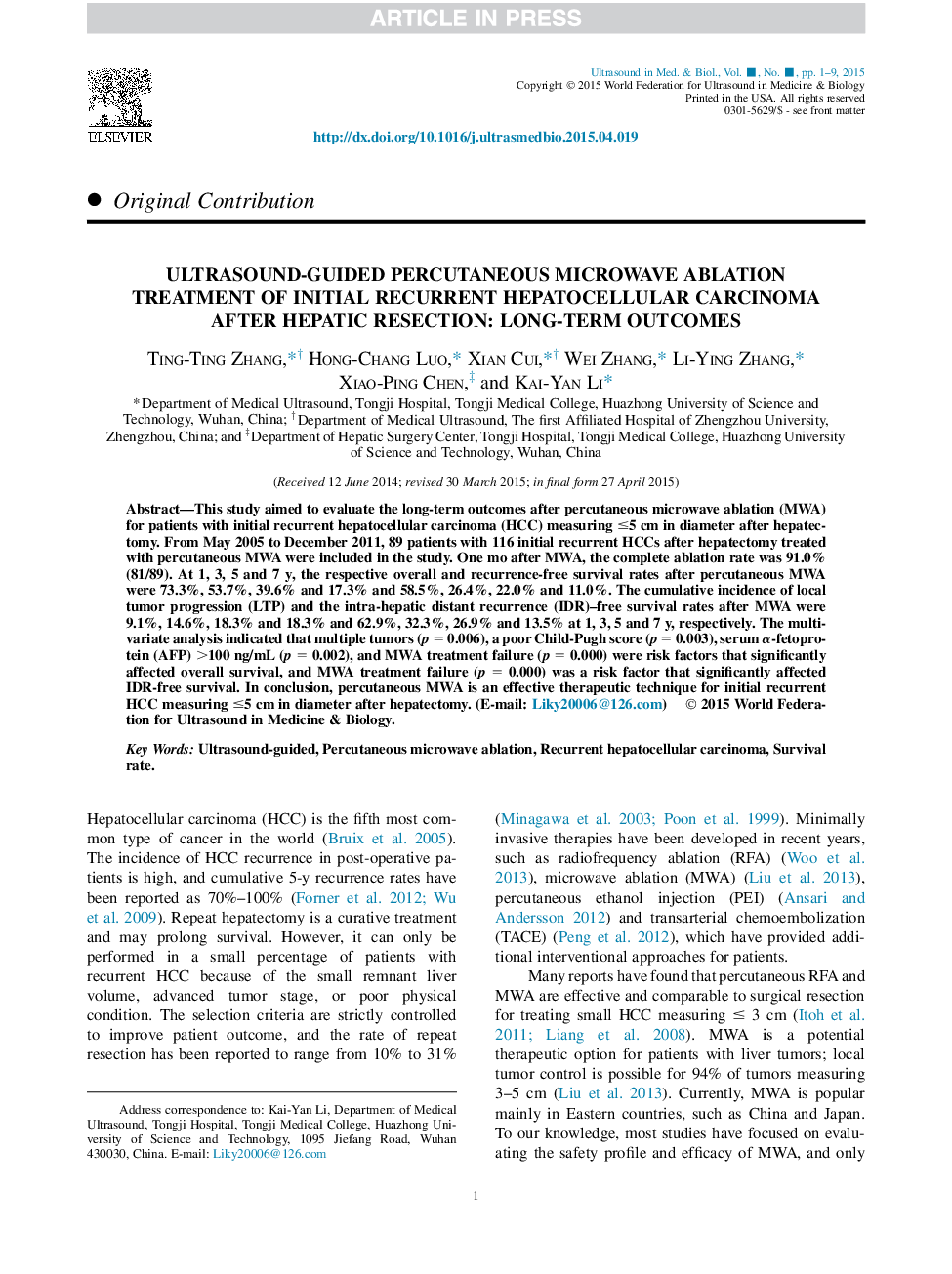| Article ID | Journal | Published Year | Pages | File Type |
|---|---|---|---|---|
| 1760281 | Ultrasound in Medicine & Biology | 2015 | 9 Pages |
Abstract
This study aimed to evaluate the long-term outcomes after percutaneous microwave ablation (MWA) for patients with initial recurrent hepatocellular carcinoma (HCC) measuring â¤5 cm in diameter after hepatectomy. From May 2005 to December 2011, 89 patients with 116 initial recurrent HCCs after hepatectomy treated with percutaneous MWA were included in the study. One mo after MWA, the complete ablation rate was 91.0% (81/89). At 1, 3, 5 and 7 y, the respective overall and recurrence-free survival rates after percutaneous MWA were 73.3%, 53.7%, 39.6% and 17.3% and 58.5%, 26.4%, 22.0% and 11.0%. The cumulative incidence of local tumor progression (LTP) and the intra-hepatic distant recurrence (IDR)-free survival rates after MWA were 9.1%, 14.6%, 18.3% and 18.3% and 62.9%, 32.3%, 26.9% and 13.5% at 1, 3, 5 and 7 y, respectively. The multivariate analysis indicated that multiple tumors (p = 0.006), a poor Child-Pugh score (p = 0.003), serum α-fetoprotein (AFP) >100 ng/mL (p = 0.002), and MWA treatment failure (p = 0.000) were risk factors that significantly affected overall survival, and MWA treatment failure (p = 0.000) was a risk factor that significantly affected IDR-free survival. In conclusion, percutaneous MWA is an effective therapeutic technique for initial recurrent HCC measuring â¤5 cm in diameter after hepatectomy.
Related Topics
Physical Sciences and Engineering
Physics and Astronomy
Acoustics and Ultrasonics
Authors
Ting-Ting Zhang, Hong-Chang Luo, Xian Cui, Wei Zhang, Li-Ying Zhang, Xiao-Ping Chen, Kai-Yan Li,
